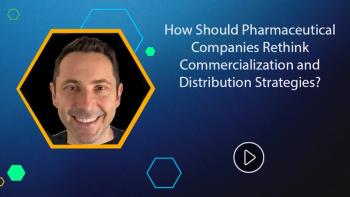
Tweets & Drugs & Rock n’ Roll
Peter Houston was surprised to find himself discussing Turing Pharmaceutical’s Daraprim in the offices of ClassicRock magazine last week. What’s even more surprising was impact the price hike on the toxoplasmosis treatment was having on a punk record label.
I don’t remember ever, outside of my time with Pharm Exec, having a conversation about drug pricing. To be honest, I never really had a drug pricing conversation at Pharm Exec – I just listened to people that knew way more than I did (everyone).
Imagine my surprise when I found myself discussing the pricing of Turing Pharmaceutical’s Daraprim in the London offices of the iconic ClassicRock magazine. What’s even more surprising was that the discussion centred on the impact a 5,000 percent price hike on the toxoplasmosis treatment was having on a punk record label.
Wednesday morning, I was walking across the newsroom at TeamRock, the publisher of a portfolio of Rock and Metal music magazines that includes ClassicRock, and staring out from the Teamrock.com home page, was the face of
It turned out that Shkreli - newly crowned ‘
Explaining that he feared for the future of his business, the singer and label boss said, "Never in a million years did any of us expect to wake up to the news of the scandal that he is now involved in.” The label cut ties ‘immediately’.
I have no doubt Rickly ended his business relationship with Shkreli based on his and his colleagues own views of the rights and wrongs of putting a $750 price tag on a pill that previously cost less than $15. But the collective howl of disapproval sent up by social media when the story broke must have made their decision to split from their erstwhile financial backer very straight forward.
As online magazine Salon put it, ‘
Interestingly it was a tweet from Democratic presidential hopeful Hilary Clinton that seems to have started the social snowball rolling. On Monday, responding to
Before anyone saw that plan, Biotech stocks were down almost 5 percent and the internet was hating hard on Shkreli.
Every drug company executive that reads Pharm Exec regularly, even the few that don’t, know formulating drug pricing strategies is almost as complicated as formulating the drugs themselves. But as far as the internet was concerned last week, someone was trying to take a drug that cost pennies to manufacture and gouge chronically ill HIV sufferers for hundreds of thousands of dollars.
The general reporting was harsh; work your way through the thousands of tweets, Facebook posts and article comments about what Shkreli did and you worry that the security bill for keeping him safe will be higher than any additional money he could ever make from Daraprim.
One ill-judged pricing decision by a
This isn’t just about one silly CEO, this is about pharma.
The original Times story devotes almost as much space to other instances of perceived price gouging as it does to Shkreli and Daraprim. And online headlines in several mainstream publications don’t demure from dragging Pharma in.
The Atlantic –
Forbes –
The Daily Beast -
Vox ironically cast Shkreli as an ‘
While Big Pharma has dealt with public irritability over drug pricing for years, this feels a little different. It feels different because it’s an election year. It feels different because there’s what the Atlantic calls an ‘easily dislikeable villain’ to fix existing resentments on. And it feels different because of social media: This story took off like a rocket; so much so that even the rock fans of the UK have a view and almost 220,000 people have signed
In all the coverage of this story, the best advice for Pharma comes from Forbes science and medicine correspondent
Herper also suggests that leaving drug pricing to the political process is dangerous. I’d argue that leaving it to social media is even worse.
Newsletter
Lead with insight with the Pharmaceutical Executive newsletter, featuring strategic analysis, leadership trends, and market intelligence for biopharma decision-makers.




